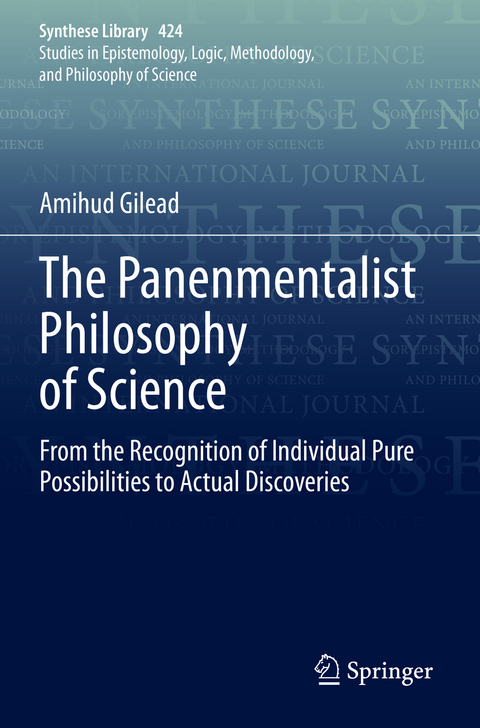
The Panenmentalist Philosophy of Science
Springer International Publishing (Verlag)
978-3-030-41126-8 (ISBN)
This book presents a philosophy of science, based on panenmentalism: an original modal metaphysics, which is realist about individual pure (non-actual) possibilities and rejects the notion of possible worlds. The book systematically constructs a new and novel way of understanding and explaining scientific progress, discoveries, and creativity. It demonstrates that a metaphysics of individual pure possibilities is indispensable for explaining and understanding mathematics and natural sciences. It examines the nature of individual pure possibilities, actualities, mind-dependent and mind-independent possibilities, as well as mathematical entities. It discusses in detail the singularity of each human being as a psychical possibility. It analyses striking scientific discoveries, and illustrates by means of examples of the usefulness and vitality of individual pure possibilities in the sciences.
lt;p>
Amihud Gilead was born in Jerusalem in 1947. He is a Professor Emeritus at the Department of philosophy, the University of Haifa. For many years, his main research was devoted to the study of the history of philosophy, especially of early modern philosophy. From 1999 till now he introduced and has elaborated on an original modal metaphysics, panenmentalism, which is a special kind of possibilist realism about individual pure (non-actual) possibilities. Professor Gilead published various books and papers, most of them in English.
Acknowledgments.- 1. Introduction.- 2. How Many Pure Possibilities Are There? Or Contra Actualism.- 3. A Panenmentalist Consideration of the Identity of Indiscernibles.- 4. Two Kinds of Discovery: An Ontological Account.- 5. Mathematical Possibilities and their Discovery.- 6. A Panenmentalist Approach to Molyneux's Problem and Some Empirical Findings.- 7. Pure Possibilities and Some Striking Scientific Discoveries.- 8. The Philosophical Significance of Alan Mackay's Theoretical Discovery of Quasicrystals.- 9. Shechtman's Three Question Marks: Possibility, Impossibility, and Quasicrystals.- 10. Eka-Elements as Chemical Pure Possibilities.- 11. Quantum Pure Possibility and Macroscopic Physics.- 12. Brain-images and the Human Mind.- 13. Neoteny and the Playground of Pure Possibilities.- 14. Milgram's Experience and Saving Possibilities.- 15. Singularity and Uniqueness: Why Is Our Immune System Subject to Psychological and Cognitive Traits?.- References.- Index.
| Erscheinungsdatum | 23.03.2021 |
|---|---|
| Reihe/Serie | Synthese Library |
| Zusatzinfo | XII, 315 p. 2 illus. |
| Verlagsort | Cham |
| Sprache | englisch |
| Maße | 155 x 235 mm |
| Gewicht | 504 g |
| Themenwelt | Geisteswissenschaften ► Philosophie ► Allgemeines / Lexika |
| Mathematik / Informatik ► Mathematik ► Allgemeines / Lexika | |
| Mathematik / Informatik ► Mathematik ► Logik / Mengenlehre | |
| Naturwissenschaften | |
| Schlagworte | Grades of knowledge • Individual Pure (non-acual) Possibilities • Open philosophical system • Rationalism and empiricism • Spinoza's entire philosophy • Spinoza’s entire philosophy • Spinoza's Substance • Spinoza’s Substance • The Desired System • the Necessary Plurality • the Problem of the Attributes |
| ISBN-10 | 3-030-41126-5 / 3030411265 |
| ISBN-13 | 978-3-030-41126-8 / 9783030411268 |
| Zustand | Neuware |
| Haben Sie eine Frage zum Produkt? |
aus dem Bereich


